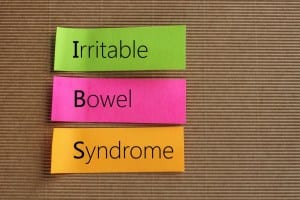
It is thought to affect at least 12% of the population. So what is Irritable Bowel Syndrome?
It is a functional Bowel disorder that is characterised by abdominal cramping and altered bowel motions.
There are three types of Irritable Bowel Syndrome
- IBS-A which is alternating constipation and diarrhoea
- IBS-C which is constipation dominant. Generally abnormally delayed and infrequent bowel movements.
- IBS-D which is diarrhoea dominant. Generally discomfit, pain and urgency around bowel movements.
It is diagnosed using the Rome IV criteria. The Rome IV criteria always presumes the absence of structural or biomechanical explanation of symptoms.
Rome IV criteria is based on the recurrent abdominal pain or discomfit that has been present for at least three months duration with symptoms on at least three days in the month including the following symptoms:
- relieved with defecation
- onset associated with change in the frequency of stool
- onset associated in change in form or appearance of stool
Other signs and symptoms:
- urgency, incomplete evacuation, abdominal extension and the passage of mucous. If blood is ever seen in the stool you must
- seek medical help immediately.
Irritable Bowel syndrome is a frustrating condition and no two cases are alike. It differs greatly from person to person.
There are many theories about why it differs from person to person.
Alterations to gut flora
We know that gut flora is disrupted in Irritable Bowel Syndrome. This can happen through the use of NSAID’s, antibiotics, oral contraceptive pill, poor diet, psychological stress and physical stress.
Infection of the gastrointestinal system
This causes mucosal inflammation and damage as well as increasing the risk of disruption of good bacteria. 80% of people with IBS also have SIBO (small intestine bacterial overgrowth)
Visceral hypersensitivity
People with IBS have more awareness of the pain and disruptions to gastrointestinal tract. They are generally worse for stress.
Altered serotonin signalling
As we know around 80% of our serotonin is made in our gut. Serotonin stimulates our second brain (enteric nervous system) for peristalsis. Too much serotonin can cause diarrhoea and not enough can cause constipation.
Food sensitivities (FODMAPS)
Many people get gut symptoms after eating certain foods. Food sensitivities are a bit like a chicken and egg scenario. We are not sure which one comes first.
Dysregulation of the gut/brain connection
We know our gut and brain are interconnected via the enteric nervous system. This is through our ‘fight or flight’ response. Stress has a huge impact on gut function. Stress in Irritable Bowel Syndrome often leads to overstimulation of the ‘fight or flight’ response which impacts the way we digest our food, can cause us pain and alters bowel motility.
There are other conditions to rule out before settling on an Irritable Bowel Syndrome diagnosis.
Thyroid conditions – Overactive or underactive thyroid can give similar symptoms as Irritable Bowel Syndrome.
Coeliac’s disease – Chronic diarrhoea is one of the symptoms of Coeliac’s disease.
Lactose or fructose malabsorption.
Crohn’s disease or colitis – they have a similar symptom picture.
Other causes of dysbiosis
Small Intestinal Bacteria Overgrowth – 80% of Irritable Bowel Syndrome patients have SIBO
Post infectious IBS – The risk of developing Irritable Bowel Syndrome increases 6 fold after having an acute gastrointestinal infection like food poisoning or a gastro bug.
Antibiotics – They kill bacteria both good and bad bacteria.
Parasites – Blastocystis hominis, Dientamoeba fragilis may mimic IBS- D and Giardia can go lead to Irritable Bowel Syndrome.
Altered digestive secretions – due to nutritional insufficiency or more need; gastric acid, hydrochloric acid, pancreatic enzymes.
Food – is the most common trigger. Food alone is not the trigger. You will have other factors as well.
Investigations
Full blood count, ESR, CRP, liver function test, iron studies, B12, gliadin antibodies, PCR stool test to rule out parasites, Colonoscopy to rule out diverticulitis and inflammatory bowel disease. Breath test for lactose, fructose malabsorption and small intestine bacteria overgrowth (SIBO). Elimination diet or IgG/IgA test to assess for food intolerances.
Treatment goals for Irritable Bowel Syndrome
For the best success in treating this condition you need to find the cause.
Some things you need to achieve to get this are:
- Improve transit time
- Improve overall peristalsis
- Decrease mucousal permeability aka leaky gut
- Reduce nausea
- Decrease bloating
- Correct dysbiosis
- Address any neurotransmitter dysfunction
- Improve stomach function
- Decrease gas
- Manage stress
- Identify and treat food intolerances/allergies
If you would like to know more about how I could help you, book in for a free 15 minute GUT HEALTH ASSESSMENT and let’s get you started.
